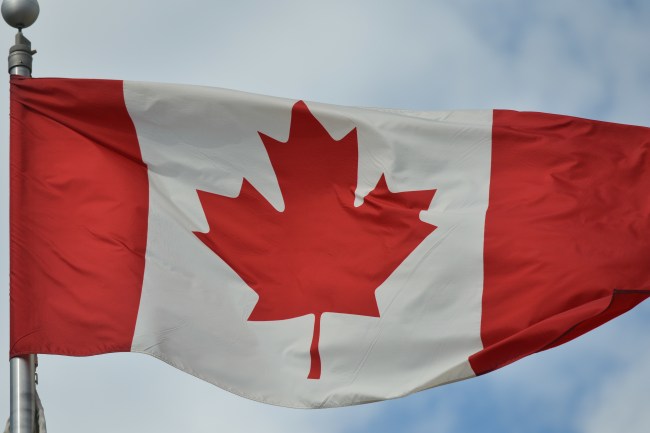
Artur Widak/NurPhoto via Getty Images
As the American government is preparing to issue one-time maximum individual payments of $1,200 to the majority of its citizens, Canada is backing up the Brinks truck. Kind of. For some.
The Canadian government announced the Canada Emergency Response Benefit (CERB), which will provide a lucrative flat benefit for workers who have been out of work for 14 consecutive days in any four-week period for reasons relating to COVID-19.
Canada just passed their stimulus… $8,000 per person – $2k per month for four months…
— Brad Reason (@BradReason) March 31, 2020
The Trudeau government is rolling out a 75 per cent wage subsidy to help employers keep workers on payroll through the crisis. Those who’ve already lost their income can turn to the new Canada Emergency Response Benefit (CERB), which will provide $2,000 a month for up to four months. [via]
Totaling $8,000 per person.
This sounds like your typical case of Canadians being nice until you consider that the package only benefits those who have been terminated/laid off, are sick/quarantined/in self-isolation/taking care of someone with COVID-19, or are working parents who must stay home without pay to care for children due to illness or school/daycare closures
While Canadians who qualify won’t have to worry where their next paycheck is coming from until the four-month cycle expires on October 3, 2020, the plan as it stands leaves those who were previously unemployed and students about to graduate, for instance, out of luck.
Now let’s just let Quarantine Twitter fight about who’s program is more generous.
https://twitter.com/d_w_shelton/status/1242896173486104576?s=20
How countries are responding to the Coronavirus:
– England: Paying 80% of people's salary
– Denmark: Paying 75% of people's salary, and setting up a fund for freelancers
– Canada: Sending everyone $2k/month
– US: Sending some people a one time $1,200 check$1,200 is not enough. https://t.co/x7CnRmpEku
— #CeasefireNow (@maxberger) March 25, 2020
USA: ONE $1200 check. Even though the hardest hit places have an average rent cost well above that per month.
Canada: $2k/mo for 4 months.
I have nothing clever to say. Our country just plain sucks
— Jacquis (@jacquisneal) March 25, 2020
Did I see you Americans are getting a one-time $1200 check to cover COVID unemployment? Because Canada just announced $2000/month for the next four months.
— Harley Vasquez (@yrechoheart) March 25, 2020
https://twitter.com/nowallnotrump/status/1244824443941261315?s=20
The citizens of Canada are getting $8,000 a piece for the first month of the paramedic and then $2,200 every month to cover bills and essentials!!!! the US doesn’t give af about us
— LuB🤍 (@lexbandz1) March 30, 2020
People MATTER, in Canada.
— Cyrano (@trvlnman24) March 31, 2020
Canada has a better, more efficient stimulus plan that actually covers damn near every Canadian & doesn’t give 500 billion dollars to large companies, we as Americans should be ashamed of ourselves for accepting this package
— Twan Tweets (@Twan_tweets) March 25, 2020
America’s stimulus: $1200 per person
Canada’s stimulus: $8000 per personFucking socialists.
— Brian MD🇮🇱 (@bone00afide) March 31, 2020
I know most people don’t read and are borderline dumb. But an extra $600 per week in unemployment benefits for 4 months is $2400 additional money…that’s almost $10,000 PLUS your stimulus check.
If you think $2000 in ONE check and no UE benefits is somehow better, go to Canada pic.twitter.com/smf0FZFELC
— papíto (@NotAFuckinBaker) March 26, 2020
https://twitter.com/Jokersall/status/1243080182656839681?s=20
$2,000 a month for four months sounds nice. All you have to do is become infected by coronavirus to get it. Something to consider.